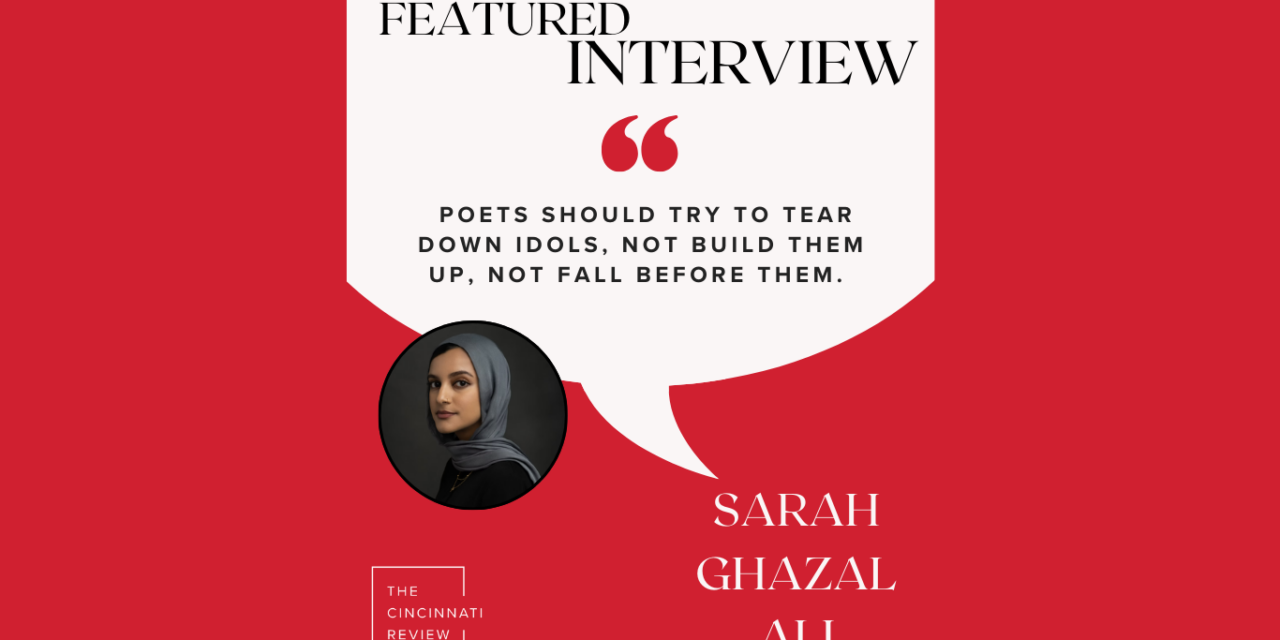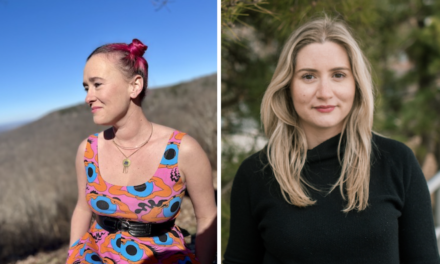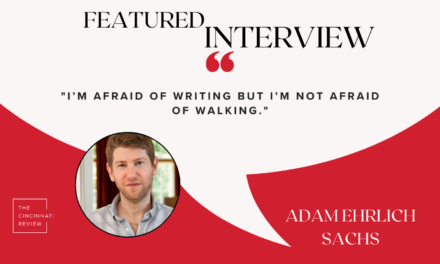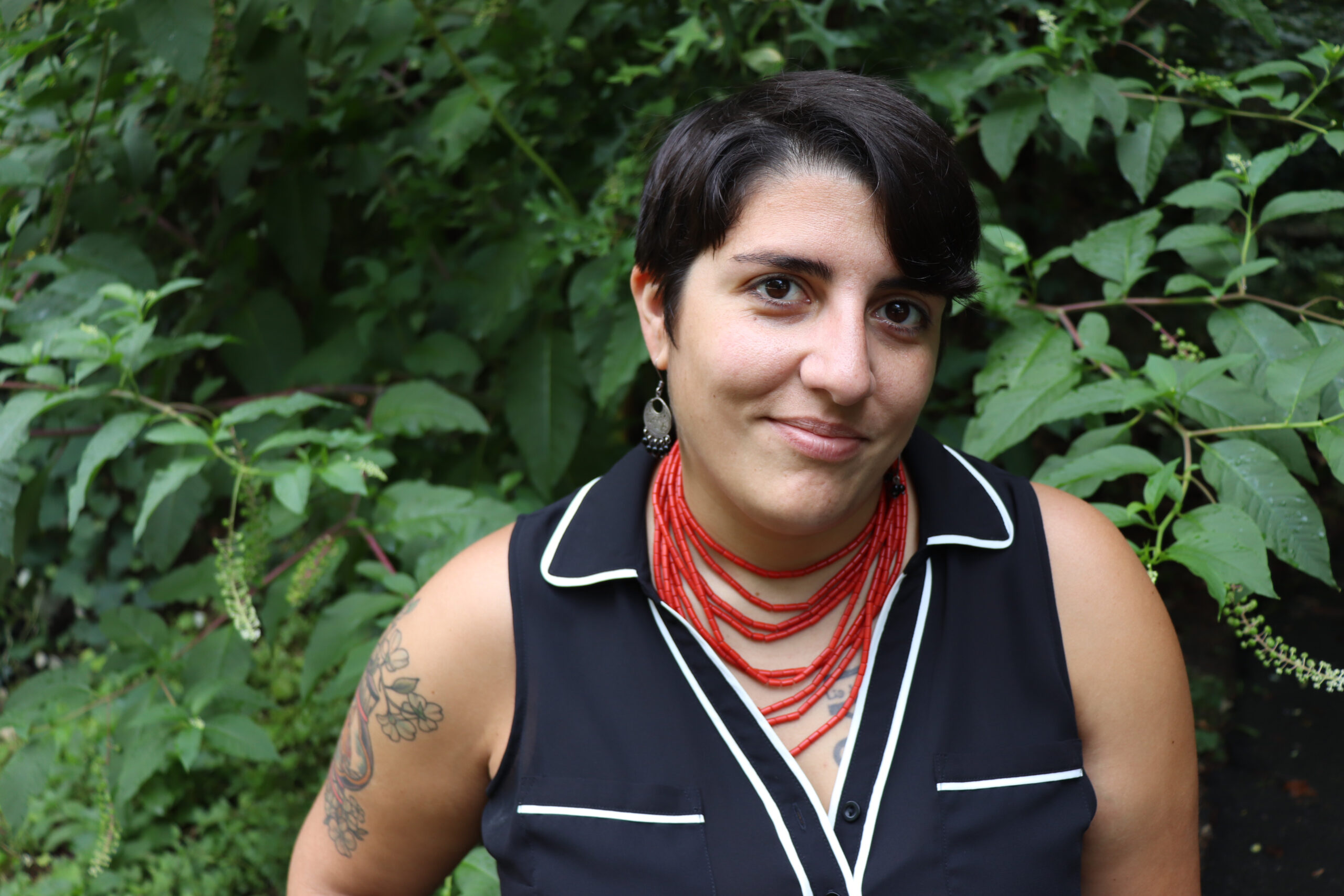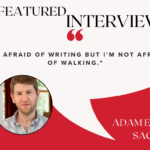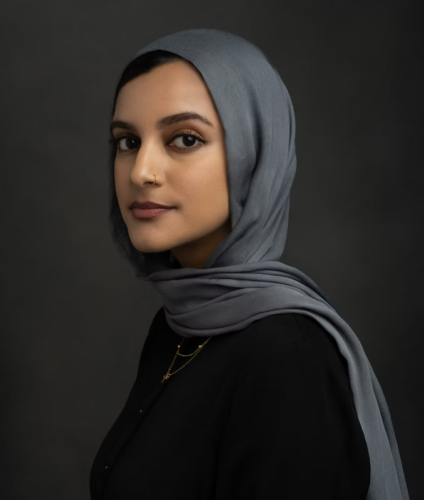
Editors’ note: We’re pleased to present an interview of the poet Sarah Ghazal Ali by Editorial Assistant Arah Ko:
Arah Ko: First, I want to offer my heartfelt congratulations on the release of Theophanies! This debut collection is so rich and haunting, alive with lineage, womanhood, faith, and history. Names and naming are so crucial to this book—Sarah, Ghazal, Hajar, even “daughter”—how do you articulate the relationship between poetry and naming? Were there any aspects of naming or titling you found particularly challenging in this project?
Sarah Ghazal Ali: Thank you so much! It’s a delight to be read and asked such thoughtful questions. Engagement of this kind is a gift, and I’m grateful for it. Audre Lorde articulated this brilliantly: “Poetry is the way we help give name to the nameless so it can be thought.” I name women in my work to ensure women are at the forefront of my thinking. Poetry is where we name people and dreams and other modes of being to resist their erasure and ensure their survival. I struggled with naming with clarity, especially when it came to making clear the distinction between Sarah the writer (me), the speaker-version of me, and Sarah the matriarch as a figure.
AK: I’m floored by the elegant, even exquisite, ways you use form. The family tree in “Matrilineage [Recovered]” and the ghazals you are such a master of come to mind. In your poetry writing process, do you typically start with the form in mind first, or the content? Are there any forms you are excited to read or write in the future?
SA: Form and content are inextricably linked for me a majority of the time. For some poems, like the pantoum “Mother of Nations,” the form essentially came first—I knew I needed to write a cyclical poem that enacted menstruation, and the pantoum was perfect for that. Once I had the form, the content revealed itself to me line by line. If I don’t have a particular form in mind, I usually default to couplets or tercets. Those feel most natural to me. I’m eager to try my hand at lipograms in the future, though they intimidate me.
AK: Heritage is such a vibrant through-line in your work, especially as a member of the South Asian diaspora and as a Muslim woman, and you both emphasize and subvert these identities through your striking persona poems. What are some of the ingredients of an excellent persona poem for you? Are there any sources of inspiration that come to mind?
SA: These are such exciting questions to think through, thank you again. A good persona poem reveals something striking or unexpectedly true about the writer first and foremost. To me, they are less about the figure whose voice they speak in, more about the writer who has constructed and stepped into that voice. When I speak through the voice of the matriarch Sarah, I discover my biases and judgments of and projections upon the idea of her. Ai comes to mind immediately as one of the great persona and monologue poets.
AK: In addition to writing, you are also an accomplished editor and have spoken out against racism, Islamophobia, and social injustices. How has editing influenced your writing, if at all? And what might you see as the poet’s role, in our moment, in our culture?
SA: I have had writers tell me they’ve felt safe submitting to certain publications because they saw my name on the masthead—a name that perhaps sounded like theirs, or that signaled to them that an outlet I was associated with must share my values or be hospitable to writers of marginalized identities like mine. That taught me the gravity of having women of color in decision-making roles, and how a poet can come to represent, so to speak, an institution, for better or for worse. Those conversations revealed to me that I can’t afford as an editor to sacrifice my values, or to be silent about them. I have to be open and insistent about what I believe in so that when someone thinks my affiliation with an outlet signals safety, they are right in thinking so. I think the poet’s role is to make people see and feel again what they have become numb to, and to resist (to the best of their ability) making idols of money, power, or institutions. Poets should try to tear down idols, not build them up, not fall before them.
AK: It has been so exciting to follow the celebrations, transitions, and successes you’ve had in the past year or so, but I know a little about how much dedication is required of a writer behind the scenes. What is one piece of advice you would give your younger self as a fledgling poet?
SA: Be audacious, and don’t censor yourself when you write. Try not to think about audience or reception or publication while you’re writing—all of that is ancillary and can make you self-censor and over-revise while you should just be freely drafting. Remember that you can say whatever you want in your drafts, because they can remain private! It’s okay to write into uncertainty, and shame, and even things that might be problematic. There’s no shame in working through your own thinking privately. The real work comes in revision, and in determining when what you’ve written is ready for the public to read or receive it. Sometimes, for some poems, the answer is never. For others, it’s not now. Learn to discern the difference between public and private writing for yourself.
AK: Theophanies is still brand-new—and vital, and resonant—so you may not have an answer yet, but is there any area of the collection that you feel gets overlooked, or underrated? What is something you hope people will pay close attention to in this work?
SA: I love this question! I hope people will hear my love of form in this book beyond the ghazals—I work in invented forms, and persona, and contrapuntals, to name a few of them. Form is endlessly exciting to me, and I hope it excites readers as well.
AK: I’m looking forward to following your future projects! Can you tell us anything about the direction you see your poetry going in the future?
SA: I’m writing more into shame, and failure, and mess. I’m also writing into surveillance. But I’m superstitious and also don’t want to box myself in, so I won’t say much more since I might end up going in a different direction, who knows, really!
Sarah Ghazal Ali is the author of Theophanies (Alice James Books, 2024), winner of the GLCA New Writers Award and a finalist for the Kate Tufts Discovery Award. Her work has appeared in The American Poetry Review, The Kenyon Review, the Academy of American Poets’ Poem-a-Day series, and elsewhere. A Stadler and Kundiman Fellow, Sarah is the poetry editor for West Branch and an assistant professor of English at Macalester College.
Arah Ko is a writer from Hawai’i and the author of Brine Orchid (YesYes Books, 2025) and the chapbook Animal Logic (Bull City Press, 2026). Her work has been nominated for the Pushcart Anthology, Best of Net, and Best New Poets and is published or forthcoming in American Poetry Review, Ninth Letter, The Threepenny Review, Poetry Northwest, and elsewhere. She received her MFA in creative writing from The Ohio State University and is a PhD student in creative writing at the University of Cincinnati. Catch her at arahko.com.

